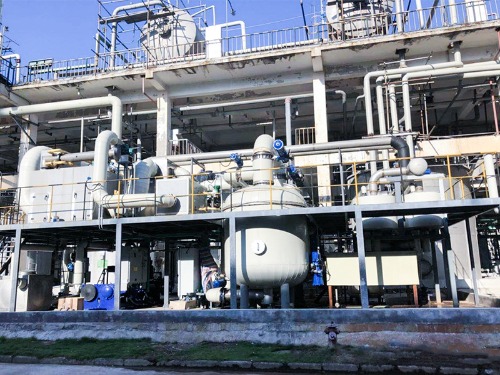Choosing the right fine chemicals waste gas treatment method can be important to ensure compliance with environmental regulations and to minimize the impact on human health and the environment. Here are some factors to consider when choosing a fine chemicals waste gas treatment method:
Composition of the Waste Gas: The composition of the waste gas can help to determine which waste gas treatment method will be most effective. For example, some waste gases may contain organic compounds that require different treatment methods than gases that contain inorganic compounds.Quantity and Concentration of Pollutants: The quantity and concentration of pollutants in the waste gas can also help to determine the appropriate treatment method. For example, a waste gas that contains a high concentration of pollutants may require a different treatment method than a waste gas that contains low levels of pollutants.Temperature and Pressure: The temperature and pressure of the waste gas can also influence the choice of waste gas treatment method. Some methods may work better at higher temperatures or pressures, while others may be more effective at lower temperatures or pressures.Environmental Regulations: Environmental regulations may dictate which waste gas treatment methods are acceptable for specific types of pollutants. It is important to ensure that any treatment method chosen is in compliance with relevant regulations.Cost: The cost of the waste gas treatment method can also be an important factor to consider. Some methods may be more expensive than others, and it is important to balance the cost with the effectiveness of the treatment method.
Overall, choosing the right fine chemicals waste gas treatment method requires careful consideration of the composition of the waste gas, the quantity and concentration of pollutants, the temperature and pressure of the gas, environmental regulations, and cost. Consulting with an environmental engineer or specialist can be helpful in selecting the most appropriate waste gas treatment method.Besides,The working principle of fine chemicals waste gas treatment depends on the specific method used, but there are several common principles and processes that are used in many treatment methods. Here are some of the basic principles of fine chemicals waste gas treatment:
Adsorption: Adsorption is a process in which pollutants in the waste gas are attracted to and adhere to a surface. Adsorption can be used to remove volatile organic compounds (VOCs) and other pollutants from the waste gas. Activated carbon is a commonly used adsorbent material.Absorption: Absorption is a process in which pollutants in the waste gas are dissolved in a liquid or solid material. Absorption can be used to remove acidic gases, such as sulfur dioxide, from the waste gas. Common absorption materials include caustic soda, lime, and activated alumina.Oxidation: Oxidation is a process in which pollutants in the waste gas are reacted with oxygen to form less harmful compounds. Oxidation can be used to remove organic compounds and other pollutants from the waste gas. Common oxidation methods include thermal oxidation, catalytic oxidation, and ozone oxidation.Filtration: Filtration is a process in which the waste gas is passed through a filter medium to remove particles and other pollutants. Filtration can be used to remove particulate matter, such as dust and soot, from the waste gas. Common filter media include fabric, ceramic, and activated carbon.Biological Treatment: Biological treatment is a process in which microorganisms are used to break down pollutants in the waste gas. Biological treatment can be used to remove organic compounds and other pollutants from the waste gas. Common biological treatment methods include biofilters and biotrickling filters.
Overall, the working principle of fine chemicals waste gas treatment depends on the specific method used, but many methods involve adsorption, absorption, oxidation, filtration, or biological treatment. The effectiveness of the treatment method will depend on the specific pollutants present in the waste gas and the conditions of the treatment process.



 English
English 简体中文
简体中文